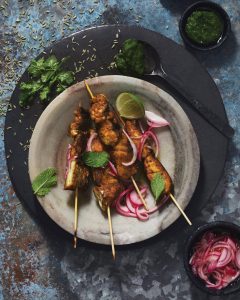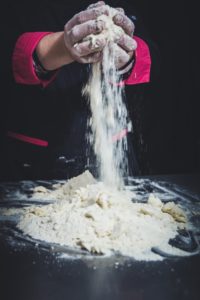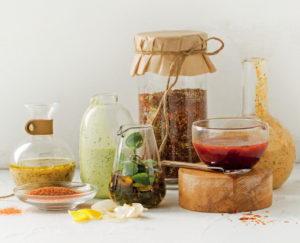We know that vitamin Bs exist, and we know that there are a lot of them. But why are they important for our bodies and what food sources can we get them from?
By Ulisha Moodley & Roxy Greeff
VITAMIN B1 = THIAMINE
What it does: It helps to maintain the ability of the body’s cells to convert carbohydrates into energy.
Sources: Whole grains, spinach, bananas, soybeans, liver, beef, bread, green peas and nuts
VITAMIN B2 = RIBOFLAVIN
What it does: It promotes the metabolism of carbs and successful fat burning, and helps maintain healthy skin and eyes.
Sources: Eggs, leafy greens, fish, meat, almonds, yoghurt, milk, chard and cottage cheese
VITAMIN B3 = NIACIN
What it does: It works to help the body metabolise food at the stage of digestion, and to use fats and sugars correctly.
Sources: Tuna, chicken, beef, salmon, avocados, broccoli, dates, nuts, sweet potatoes, carrots, tomatoes, mushrooms, whole grains, milk and eggs
VITAMIN B5 = PANTOTHENIC ACID
What it does: It is needed for growth. It also plays a role in the production of hormones and cholesterol.
Sources: Beans, eggs, meat and whole grain cereals
VITAMIN B6 = PYRIDOXINE
What it does: It is involved in brain development during pregnancy and infancy, as well as immune function.
Sources: Liver, chicken, fish, nuts, green beans and bananas
VITAMIN B7 = BIOTIN
What it does: It plays a big part in cell growth through the metabolism of fats and carbohydrates, and the production of fatty acids.
Sources: Beans, cauliflower, egg yolks, chocolate, fish, liver, meat, nuts, peanut butter, soy products, whole grains, oatmeal, dairy products, molasses, mushrooms and oysters
VITAMIN B9 = FOLATE
What it does: It is essential for DNA synthesis, which is critical for cell growth and repair. Rapid cell growth is the reason pregnant women are advised to take supplements.
Sources: Spinach, asparagus peas, dried beans, broccoli, liver, sunflower seeds and oranges.
VITAMIN B12 = COBALAMIN
What it does: It helps to produce DNA and keeps nerve and blood cells happy, preventing certain types of anaemia.
Sources: Dairy products, meat and eggs
All of these vitamins are water-soluble though so your body can’t store them and you will excrete any excess each day. You should therefore be replenishing your body with them daily.
Image credit: instagram.com




